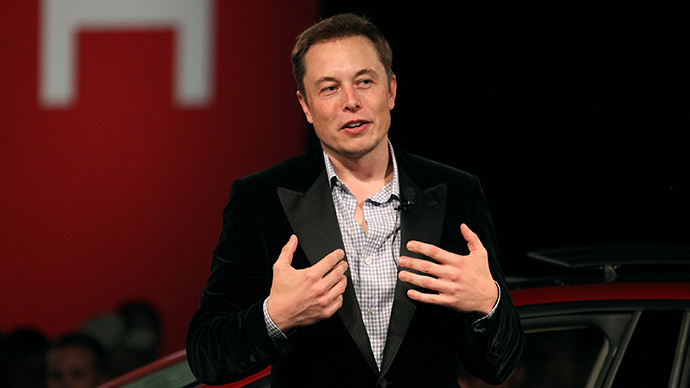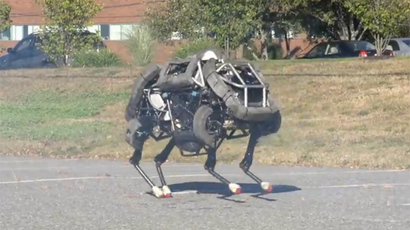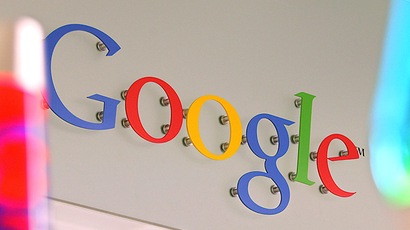Elon Musk: Artificial intelligence will be ‘more dangerous than nukes’

Billionaire entrepreneur and inventor Elon Musk took to Twitter over the weekend to sound the alarm about the dangers of artificial intelligence, which he says could be more of a threat to humans than the nuclear era.
"We need to be super careful with AI," he tweeted, adding that artificial intelligence is "potentially more dangerous than nukes."
Worth reading Superintelligence by Bostrom. We need to be super careful with AI. Potentially more dangerous than nukes.
— Elon Musk (@elonmusk) August 3, 2014
Musk was referring to the book ‘Superintelligence: Paths, Dangers, Strategies,' by Nick Bostrom, which poses questions about how humans will be able to handle computers containing advanced intelligence.
Musk followed that tweet with another, speculating that humans are willingly ushering in what could be their own demise at the hands of robot domination.
"Hope we're not just the biological boot loader for digital superintelligence. Unfortunately, that is increasingly probable."
Hope we're not just the biological boot loader for digital superintelligence. Unfortunately, that is increasingly probable
— Elon Musk (@elonmusk) August 3, 2014
Tesla-founder Musk, 42, has invested in artificial intelligence ventures in order to push for positive results from AI, he has said.
“I think there is potentially a dangerous outcome there,” he told CNBC of artificial intelligence.
“There have been movies about this, you know, like Terminator,” he added. “There are some scary outcomes. And we should try to make sure the outcomes are good, not bad.”
In March, Musk joined Facebook founder Mark Zuckerberg and actor Ashton Kutcher to invest in AI group Vicarious.
The aim of Vicarious is to build a “computer that thinks like a person…except it doesn’t have to eat or sleep,” said the company’s co-founder Scott Phoenix.
Vicarious is in the process of building a program that replicates the brain’s neocortex.
“Vicarious is developing machine learning software based on the computational principles of the human brain,” the company’s website says. “Our first technology is a visual perception system that interprets the contents of photographs and videos in a manner similar to humans. Powering this technology is a new computational paradigm we call the Recursive Cortical Network."
While Musk is concerned of AI’s nefarious potential, others disagree.
"In my view, biological humans will not be outpaced by the AIs because they (we) will enhance themselves (ourselves) with AI," said artificial intelligence expert Ray Kurzweil earlier this year. "It will not be us versus the machines ... but rather, we will enhance our own capacity by merging with our intelligent creations."
Though it should be noted that Kurzweil is employed by Google, which has its own artificial intelligence effort, known as DeepMind.














